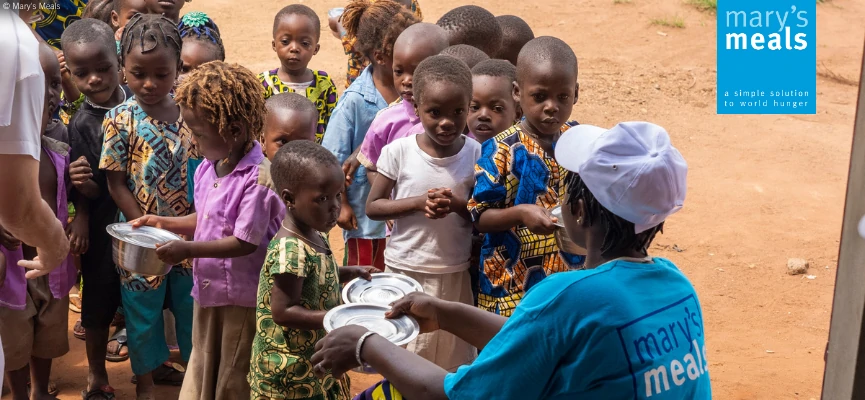Main content
Mary's Meals 2023 Princess of Asturias Award for Concord

A non-profit organization based in the Scottish town of Dalmally, Mary’s Meals primarily aims to provide a daily school meal to school-age children in eighteen of the world’s poorest countries. Founded in 2002 by Magnus MacFarlane-Barrow, its origins date back to 1992, when the Bosnian war instilled in Magnus and his brother Fergus the need to help people affected by the conflict. They accordingly organized a campaign to collect aid of all kinds, which they personally took to Bosnia a few weeks later. The donations kept coming and Magnus decided to found the charity Scottish International Relief (SIR). A few years later, in 2002, a campaign against famine in Malawi led Magnus MacFarlane-Barrow to refocus the organization’s mission to provide children suffering from chronic hunger with a daily school meal and to re-found the entity under its current name: Mary’s Meals. Every day of the school year, Mary’s Meals provides a quality meal to many of the world’s most underprivileged children. Currently, the impact of its help reaches 2 429 182 children each school day in the countries where the NGO carries out its work. To achieve this goal, its founder and current executive director, Magnus MacFarlane-Barrow, devised a system that allows reducing costs to the utmost, which means that a child can be fed every day they attend school at a cost of only €22 a year. The meals are cooked and distributed at their school by volunteers from the benefitting community. Each child has their own container to eat from, as this is the way to check that they belong to a school covered by the organization and that they attend class daily. Children must go to class in order to receive the food. This is the technique used by Mary’s Meals to improve academic performance and school enrolment rates in the countries where it is present. Schooling is free at all the schools, which helps the families involved in two ways: their children not only receive an education, but also a nutritious meal that, in many cases, is their only sustenance for the day. Moreover, Mary’s Meals uses local produce to prepare the meals it serves, which are likewise reinforced with vitamin complexes to ensure a minimum nutritional standard.
Mary’s Meals is currently present in eighteen countries: Kenya, Liberia, South Sudan, Thailand, Zambia, Zimbabwe, Syria, Yemen, Niger, Ethiopia, Lebanon, Benin, Myanmar, Ecuador, Haiti, India, Madagascar and Malawi. This last country benefits from the organization’s largest school meals programme, via which it reaches more than 1 080 800 children each school day. The NGO has also provided help in emergency situations such as those following the 2010 earthquake in Haiti, the 2011 typhoon in the Philippines and the famine and food shortages that affected several million people in Kenya and South Sudan in 2014. Since 2017, it has provided food to around 5040 children in seventeen schools in the Syrian city of Aleppo and, in 2018, it began providing meals to almost three hundred children imprisoned in Madagascar.
Magnus MacFarlane-Barrow has received various recognitions for the work carried out by his organization. He was included in the Top 10 CNN Heroes of 2010 and the 100 Most Influential People of 2015 according to Time magazine, and received the Livingstone Medal of the Royal Scottish Geographical Society in 2016 for his contribution to humanitarian work with a clear geographical scope.
End of main content
